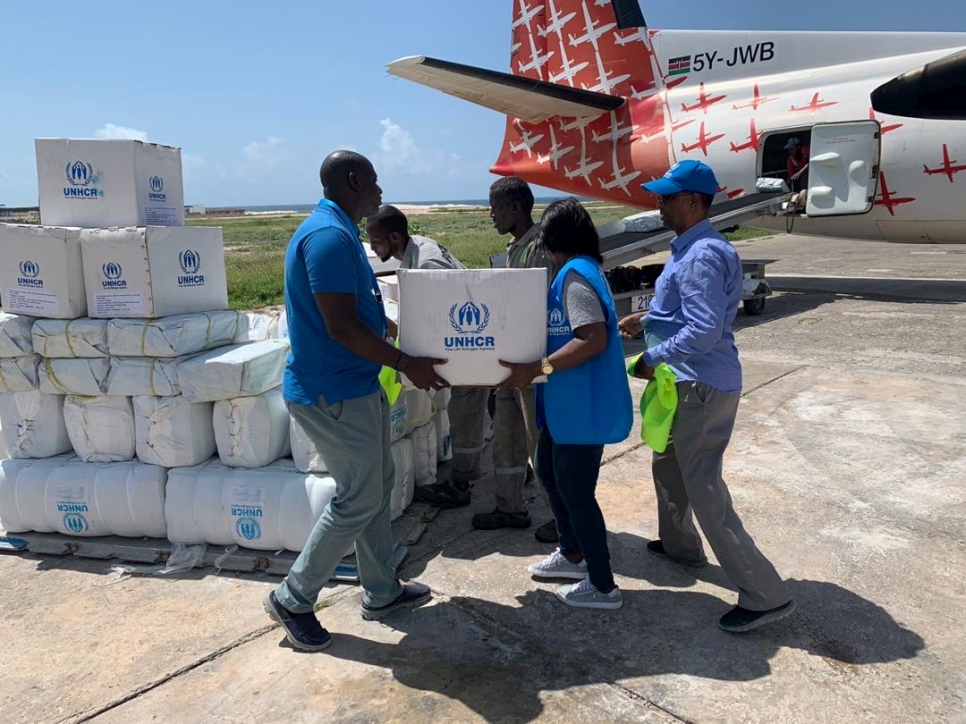MOGADISHU – CBA TV – UNHCR, The UN Refugee Agency, has airlifted vital humanitarian assistance to thousands of Somalis displaced by extraordinary flooding in the South-West and Hiirshabelle states of Somalia over the last two weeks.
UNHCR is one the first responders to lead delivery of humanitarian assistance to Belet Weyne in Hiirshabelle state where the impact of the floods has been highest, with a displacement of 230,000 men, women and children.
The first of ten cargo freighters landed yesterday, bringing in an initial six metric tons of what will amount to 3,500 urgently needed emergency kits that include jerry cans, soap, blankets, kitchen sets and plastic sheets.
“When a country like Somalia, which has shown progress but remains fragile, experiences a natural disaster, there’s no time to wait,” said Johann Siffointe, UNHCR’s Representative in Somalia. “Immediate emergency response is crucial. The situation we are seeing today is dire. At the same time millions of Somalis are counting on the international community to remember the vast humanitarian and development needs in the country that will still continue to need support once the cameras are gone.”
Up to three cargo rotations are planned to fly out daily for the remainder of the week in Belet Weyne, with UNHCR’s partner on the ground, African Volunteers for Relief and Development (AVORD), supporting the distribution of the emergency kits to more than 20,000 individuals in need. An additional 2,500 emergency shelter kits will also be delivered this week in the airlifting operation in Hiirshabelle state and the humanitarian response will also continue in other affected parts of South-West state.
This latest flooding, which follows extreme drought in the country this year, once again reveals the country’s vulnerability to the effects of climate change. According to the UNHCR- led Protection and Return Monitoring Network, when the River Shabelle broke its banks, as of
31 October 2019 severe flooding displaced more than 270,000 Somalis from their homes.
The floods have disproportionately impacted the Hiiraan, Middle Shabelle and Bay regions, where a significant number of Somalia’s 2.6 million internally displaced individuals were already residing due to conflict and drought. The risks to life and dignity are compromised further by the relentless presence of Al Shabaab in the sub-region.
UNHCR’s response strategy follows a two-pronged approach that prioritizes integrated protection, shelter and camp coordination and camp management in order to address both the emergency, immediate life-saving needs, and the need for continued support to meet longer-term needs for millions of vulnerable Somalis in order to find lasting solutions and progress for the country.






